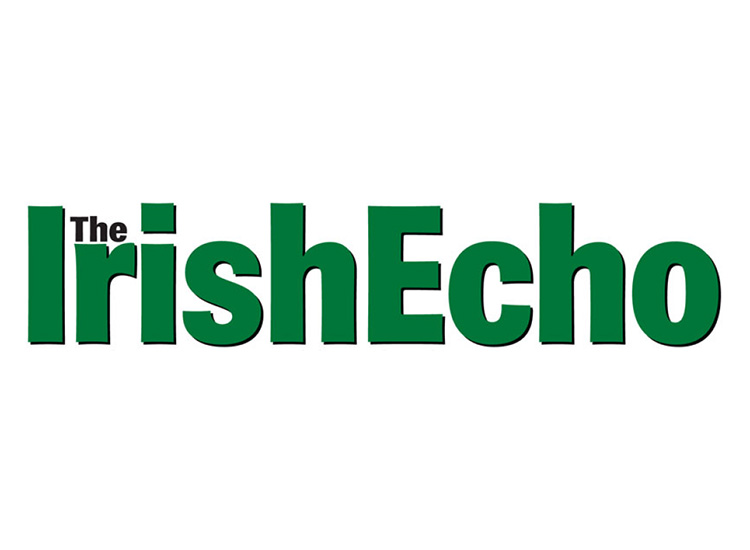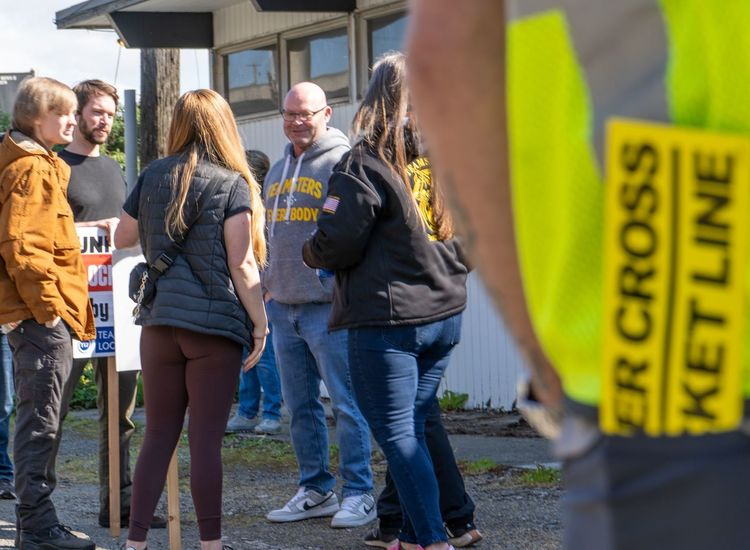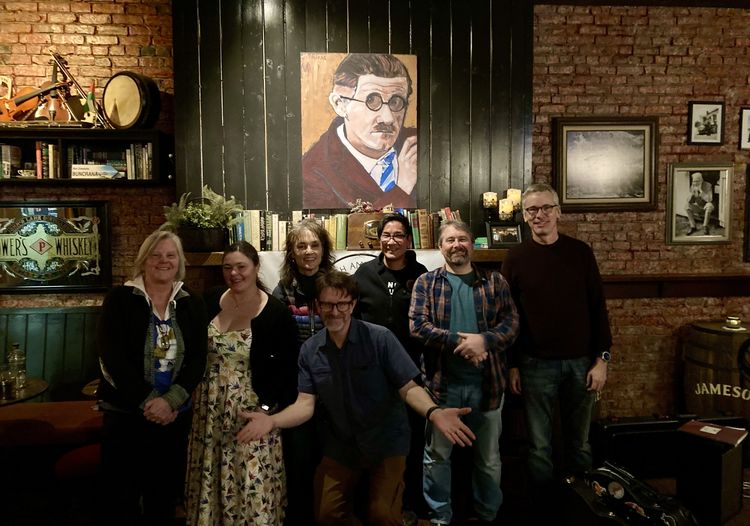The Narrowbacks in concert.
By Colleen Taylor
In the spirit of the New Year, I’m reviewing my top five album releases in 2019.
Kate Rusby, “Philosophers, Poets, and Kings”
Rusby’s 17th studio album arguably deserves mention for the simple fact of its being a seventeenth. It also makes the cut on its own merit—for its quality as a cultural artifact reflecting contemporary, inventive folk music. “Philosophers, Poets, and Kings” is Rusby’s homage to her family and hometown of Barnsley, Yorkshire. It features songs co-written with her father and her husband, Irish musician Damien O’Kane, and traditional tunes rearranged in dedication to family tradition. Finally, Rusby has composed folkloric songs about various people, both real and apocryphal, in her village. Most importantly, the album captures what makes Rusby a folk superstar: her range. It moves seamlessly across the emotional spectrum, from jaunty, comic tunes like “Jenny” and “The Squire and the Parson” to “Halt the Wagons,” one of the album’s most moving tracks and tragic stories, about the Huskar Pit mining disaster.
Rusby has also recorded one of my favorite ballads: “Bogey’s Bonnie Belle,” a long-time favorite of Irish folk singers, including Christy Moore and Cherish the Ladies. The inherent sweetness in Kate Rusby’s voice takes this song to new depths and transforms the song’s lovers from mere lyrics into real characters. This song, like the album in its entirety, epitomizes what Rusby does best: reanimating tradition, making it youthful, lively, and captivating. “Philosophers, Poets, and Kings” proves that Rusby is a folk music powerhouse and that traditional, timeless songs like “Boey’s Bonnie Belle” will always find reinvention.

Kate Rusby.
The Narrowbacks, “By Hook or By Crook”
An important reminder that Irish-American rock still thrives as its own subgenre, the Narrowbacks have returned to the recording studio with a vengeance. Over the past four years, the six (now seven) New Yorkers have surprised and impressed me with their steady improvement and creative output. “By Hook or By Crook,” released in October 2019, marks the true culmination of their progress. The album showcases both a distinct cultural and creative perspective and some excellent songwriting.
“By Hook or By Crook” is a love letter to Woodlawn and Irish New York. It maps the streets of the boroughs, two centuries of Irish history that invisibly line the city streets, and the unique American melting pot crossover of Irish folk and hardcore rock. The energy is absolutely infectious, and even if you don’t like heavy rock, the fiddle strings and chorus lyrics will pull you right in. The Narrowbacks have achieved the perfect balance of amusement and tradition with “By Hook or By Crook.”

The Narrowbacks.
We Banjo 3, “Roots to Rise” (Live Album)
This autumn, We Banjo 3 held both the first and second place spots on the Bluegrass Billboard Charts, with “Roots to Rise” (#1) and “Haven” (#2), both of which demonstrate the breadth of their skill and creativity. “Haven” was the band’s first album of completely original songs and tunes, which were over a year in the making. “Roots to Rise” offers an enduring memory of their unparalleled live performances. A live album wouldn’t typically make a “best of” list, but in the case of We Banjo 3, one has to make exception. After all, this is a band at its best when playing live.
In “Roots to Rise,” you can hear the crowds responding to each tune change with cheers and choruses, reflecting We Banjo 3’s characteristic partnership between the band and their audience. Recorded in Ann Arbor’s The Ark, one of the most prestigious and oldest folk venues in the country, the band stripped everything back to basics, letting the energy emit from the strings and their own enthusiasm. Whereas previous albums had involved cellos, brass, double bass, “Roots to Rise” captures the genuine sound of We Banjo 3 on tour. You can hear the nuance and force of each note and harmony. It is just the four musicians—four instruments, one lead vocalist—and one energized audience.
With this album, you can hear why We Banjo 3 has so many super fans (many of whom were in the audience that night in Ann Arbor, singing along to each word). Once you get a taste of their live performance, whether in person or through the album “Roots to Rise,” you’ll find yourself googling when and where the next one is. Their show, like their live album, is infectious, addictive glee.

We Banjo 3.
Thanks Brother, “EP1”
Thanks Brother is the creative collaborative project of singer-songwriters Róisín O and John Broe, who have, up until this past year, released only a handful of singles. “EP 1,” a literal title for the duo’s first lengthy release, reflects this partnership’s creative and distinctive genre of soulful electro pop—what they call “grit pop.” Combining synth with powerful vocals, Thanks Brother offers a unique marriage between Irish music’s traditionally folk past, through O’s singing style, and the contemporary pop and electro genres popular in Dublin today.
There are a number of bands making music in the same wheelhouse as Thanks Brother—it is, after all, the mainstream hip music of modern Dublin and young Irish music fans. But what distinguishes O and Broe, I think, is their emotive vocal arrangements. Roisin O’s voice is a standout, and as such she adds gravitas to Broe’s popular, modernized, electric instrumentals. There is drama behind the synth, which can be heard in songs like “We Are Different.” They also have a knack for pairing somber instrumental sounds with catchy melodies, evidenced in the energetic “We Caught It” and the uplifting chorus to “Call It Love.” Finally, there is a residue of O’s folk music background to be unearthed on this album, particularly in the song “Better this Way,” which sounds comparable to a modern-day Joni Mitchell.
In addition to resonating with modern music trends and popular interest in grit pop, indie, and electronic genres like ambient music, Thanks Brother demonstrates creativity and talent in their songwriting partnership, which has me holding out hope for a lengthier studio album release in 2020.
[caption id="attachment_104920" align="alignnone" width="300"]

Nathan Carter.
Nathan Carter, “Irish Heartland”
In terms of country music genre, which remains popular in Ireland today, particularly in the North and western Ireland, Nathan Carter easily wins the prize. A Liverpool native, Carter’s family hails from Down, and Ireland has given him fame and fans. In fact, apart from Garth Brooks, Carter was the first country music singer to hit number one in the Irish charts. This youthful singer (some might even call him a country crooner) has reenergized Irish country music, made it relevant and popular again with equal parts charm and singing talent.
Carter has released two albums in 2019: “Celtic Country” and more recently, “Irish Heartland.” As these titles suggest, Carter is becoming even more entrenched in his Irish roots, recording classic Irish folk songs as well as country hits. “Irish Heartland,” in particular, is Carter’s homage to his Irish ancestry—and his Irish fan base. The album delivers contemporary odes to Ireland such as “Temple Bar” and “Ireland” and classics like “Nancy Spain,” “Rare Ould Times,” and “Grace.” He also engages some of the biggest Irish folk acts in the business for duets, including the High Kings, Cherish the Ladies and Finbar Furey. The best of these collaborations is “May the Road Rise to Meet You” with the High Kings. In what could have been a cheesy vocal rendition of the poem of the same name, Carter and the Kings have created a completely new and moving Irish folk song. Their vocals mesh naturally and give Ireland a new anthem that harkens, in theme, to the immigrant folk songs of the early twentieth century. With “Irish Heartland,” then, Carter proves himself a fixture in both the Irish country subgenre and the more longstanding Irish folk music scene.









